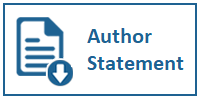Calculus Calculus Scores and Sleep Quality: A Study of UMN Informatics 2022
DOI:
https://doi.org/10.31937/ti.v17i1.4135Abstract
This study explores the interplay between academic performance and sleep quality among UMN Informatics students from the 2022 class. Examining calculus scores and Pittsburgh Sleep Quality Index (PSQI) data, the analysis reveals a diverse range of performance in calculus, with a notable concentration of students reporting good sleep quality. Covariance and correlation matrices suggest an inverse relationship between PSQI scores and exam performance, indicating that better sleep quality may be associated with higher exam scores. Shape measure analysis further emphasizes the prevalence of good sleep quality among students. However, residual tests unveil challenges such as heteroscedasticity and autocorrelation, cautioning against overinterpretation of the regression model. The GLS model highlights a significant negative relationship between PSQI scores and exam performance, providing valuable insights into the potential impact of sleep quality on academic outcomes. This study contributes to understanding the complex dynamics between sleep quality and academic achievement, acknowledging the need for nuanced interpretation and consideration of underlying statistical assumptions.
Downloads
Additional Files
Published
How to Cite
Issue
Section
License
Copyright (c) 2025 Bonifacius Martin Wibawa, Revan Revian, William Lo Channiko, Fransiscus Ati Halim

This work is licensed under a Creative Commons Attribution-ShareAlike 4.0 International License.
Authors retain copyright and grant the journal right of first publication with the work simultaneously licensed under a Creative Commons Attribution-ShareAlike International License (CC-BY-SA 4.0) that allows others to share the work with an acknowledgement of the work's authorship and initial publication in this journal.
Authors are able to enter into separate, additional contractual arrangements for the non-exclusive distribution of the journal's published version of the work (e.g., post it to an institutional repository or publish it in a book), with an acknowledgement of its initial publication in this journal.
Copyright without Restrictions
The journal allows the author(s) to hold the copyright without restrictions and will retain publishing rights without restrictions.
The submitted papers are assumed to contain no proprietary material unprotected by patent or patent application; responsibility for technical content and for protection of proprietary material rests solely with the author(s) and their organizations and is not the responsibility of the ULTIMATICS or its Editorial Staff. The main (first/corresponding) author is responsible for ensuring that the article has been seen and approved by all the other authors. It is the responsibility of the author to obtain all necessary copyright release permissions for the use of any copyrighted materials in the manuscript prior to the submission.















